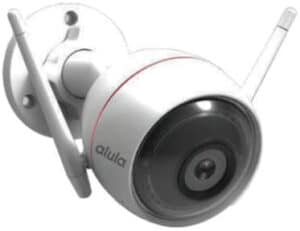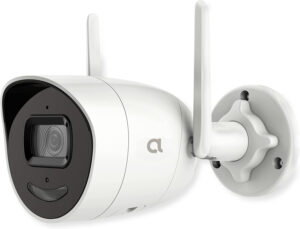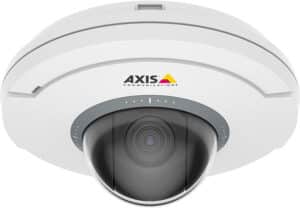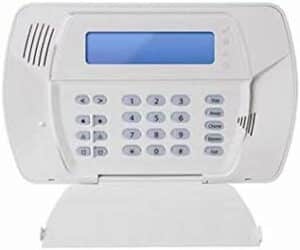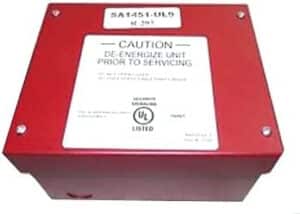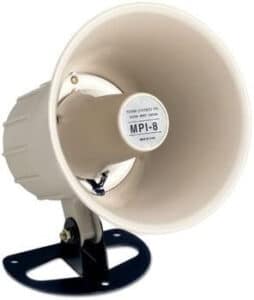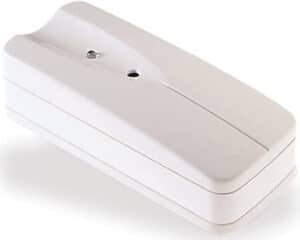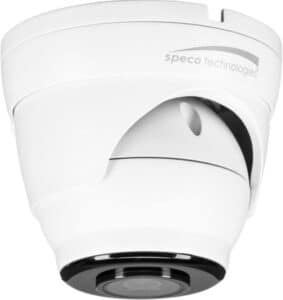In today’s technology-driven world, internet-connected devices have become the norm in our homes. However, not everyone may have access to or want to rely on an internet connection for their home security needs. That leads us to the question, can a home alarm system without internet really protect your home? The answer is yes, and in this blog, we will explore the benefits of a non-internet-connected security system, such as enhanced privacy, reliability, and security. So, if you are looking for a dependable and secure home security solution, read on to learn how a no-internet alarm system can safeguard your home the right way.
Table of Contents
How Cellular Technology has Revolutionized Traditional Home Security Systems?
Before the advent of cellular technology, home security systems relied heavily on landline connections to communicate with monitoring centers. This made them vulnerable to intruders cutting the phone lines or power outages, rendering the system useless. Cellular technology has changed the game by providing a more reliable and secure method of communication between the alarm system and the monitoring center.
Cellular alarm systems use wireless networks to transmit signals, making them less susceptible to tampering and more reliable during power outages. In the event of an intrusion or emergency, the system sends a signal to the monitoring center through cellular networks, which can then dispatch the appropriate authorities to the scene. This technology has not only made home security systems more robust but has also paved the way for home alarm systems without internet.
Moreover, cellular technology has enabled homeowners to monitor and control their home security systems remotely using smartphones and other mobile devices. This has provided an added layer of convenience and control, ensuring that homeowners can stay connected to their home security system at all times, even when they are away from home.
The Benefits of Having a Home Alarm System Without Internet
There are several benefits to having a home alarm system that does not rely on internet connectivity. Here are a few of the most notable advantages:
Reliability: Home alarm systems without internet are not affected by internet outages or slow connections, making them more reliable than their internet-dependent counterparts. This ensures that your home remains protected at all times, even during periods of internet downtime.
Security: As these systems do not rely on the internet, they are less susceptible to hacking or other cyber threats. This provides an added layer of security to your home, as you can be sure that your system is not vulnerable to external attacks.
Ease of installation: Home alarm systems without internet are typically easier to install, as they do not require complicated network configurations or additional hardware. This can save homeowners time and money during the installation process.
Cost-effectiveness: Many home alarm systems without internet are more affordable than their internet-connected counterparts, as they do not require monthly fees for internet connectivity or cloud storage. This can make these systems a more cost-effective option for homeowners looking to secure their property.
Remote access and control: Even without an internet connection, many home alarm systems offer remote access and control through cellular networks. This allows homeowners to stay connected to their home security system and receive alerts, even when they are not connected to the internet.
How a Home Security Camera System Can Provide Surveillance Without An Internet Connection?
A home security camera system without the internet can still provide surveillance and monitoring through the use of local storage and cellular networks. Instead of relying on internet connectivity to store video footage, these systems use local storage devices such as SD cards, hard drives, or network-attached storage (NAS) devices. This ensures that your video footage is securely stored and accessible, even if your internet connection is down.
Moreover, some home security camera systems without internet offer the option to connect to cellular networks for remote access and monitoring. This enables homeowners to view live footage from their security cameras and receive alerts through their smartphones or other mobile devices, even when an internet connection is unavailable.
In order to maximize the effectiveness of your home security camera system without internet, it is essential to choose a system with high-quality cameras that offer features such as night vision, motion detection, and wide-angle lenses. This will ensure that your surveillance system provides clear, detailed footage and reliable monitoring at all times.
Top 5 Features to Look for When Choosing a Home Security System Without Internet
When selecting a home security system that does not rely on an internet connection, it is important to consider specific features that will enhance the security and functionality of your system. Here are the top five features to look for in a home alarm system without internet:
Cellular monitoring: As mentioned earlier, cellular monitoring is a crucial feature for home alarm systems without internet. This ensures that your system remains connected to the monitoring center at all times, providing reliable and secure communication during emergencies.
Battery backup: In the event of a power outage, a battery backup will ensure that your home alarm system continues to function and protect your property. This is particularly important for systems that do not rely on internet connectivity, as they may not have access to alternative power sources.
Local storage for security cameras: For home security camera systems without internet, local storage is essential for securely storing video footage. Ensure that your system offers ample local storage options, such as SD cards or hard drives, to accommodate your surveillance needs.
Remote access and control: Even without an internet connection, it is important to have remote access and control over your home security system. Look for systems that offer cellular connectivity for remote monitoring and control through smartphones or other mobile devices.
Glass break sensors: Glass break sensors are an important security feature that can detect the sound of breaking glass and trigger an alarm. This can provide added protection for your home, particularly in the case of forced entry through windows or glass doors.
How Home Alarm Systems Without Internet Can Provide Emergency Response During Power Outages?
Home alarm systems without internet can still provide emergency response during power outages, thanks to their reliance on cellular networks and battery backups. In the event of a power outage, a home alarm system with a battery backup will continue to function and monitor your property. If an intrusion or emergency occurs during this time, the system will use cellular networks to send a signal to the monitoring center, which can then dispatch the appropriate authorities to your home.
This level of reliability and responsiveness is crucial during power outages, as it ensures that your home remains protected at all times, even when other communication methods may be compromised. By choosing a home alarm system without internet, you can have peace of mind knowing that your property is secure, regardless of the availability of an internet connection.
How to Install a Home Alarm System Without Internet? DIY vs. Professional installation
When it comes to installing a home alarm system without internet, homeowners have two options: DIY (do-it-yourself) installation or professional installation. Each option has its own advantages and drawbacks, and the best choice for you will depend on your specific needs, budget, and preferences.
DIY installation is often more affordable and offers greater flexibility, (check our guide to DIY home security systems here) as homeowners can choose the specific components and features they want for their home alarm system. However, DIY installation can also be more time-consuming and challenging, particularly for those with limited technical knowledge or experience. If you choose to go the DIY route, it is crucial to thoroughly research your chosen system, follow the manufacturer’s instructions, and consult online resources or forums for guidance and troubleshooting.
On the other hand, professional installation is typically more expensive but offers several advantages. Professional installers have the expertise and experience to ensure that your home alarm system is installed correctly and functions optimally. They can also provide valuable advice on the best placement of sensors, surveillance cameras, and other components for maximum security coverage. Moreover, professional installation often includes ongoing support and maintenance, ensuring that your system remains in top condition and providing you with greater peace of mind.
Ultimately, the choice between DIY and professional installation will depend on your personal preferences, budget, and the complexity of your chosen system. It is important to weigh the pros and cons of each option carefully and choose the one that best suits your needs and circumstances.
How Cellular Monitoring Enhances the Security of Your Home Alarm System Without Internet?
Cellular monitoring is a crucial feature that enhances the security and reliability of home alarm systems without internet. By using cellular networks to transmit signals, these systems are more secure and less susceptible to tampering or interference than systems that rely on landline connections or internet connectivity. Cellular monitoring also provides faster and more reliable communication with monitoring centers, ensuring that emergency responders can be dispatched quickly in the event of an intrusion or emergency.
Moreover, cellular monitoring enables homeowners to stay connected to their home security systems remotely, even when they are not connected to the internet. This allows for real-time monitoring and control through smartphones or other mobile devices, providing added convenience and peace of mind. Cellular monitoring also enables homeowners to receive alerts and notifications in real-time, ensuring that they are always aware of any security breaches or emergencies.
In summary, cellular monitoring enhances the security and functionality of home alarm systems without internet, providing reliable and secure communication with monitoring centers, real-time monitoring and control, and faster emergency response times.
The Importance of Glass Break Sensors in Your Home Alarm System
Glass break sensors are an essential component of any home alarm system, particularly for those without internet connectivity. These sensors detect the sound of breaking glass and trigger an alarm, alerting homeowners and monitoring centers to potential intrusions or security breaches.
Glass break sensors are particularly important for homes with large windows or glass doors, which can be vulnerable to forced entry. By detecting the sound of breaking glass, these sensors provide an added layer of protection and can deter potential intruders from attempting to enter your home.
When choosing a home alarm system without internet, it is important to ensure that it includes glass break sensors or the option to add them. This will provide added security and peace of mind, knowing that your home is protected against potential intrusions and security breaches.
How to Remotely Access Your Home Alarm System Without internet and Control it With Your Smartphone?
Remote access and control are important features of any home alarm system, allowing homeowners to stay connected to their security system and control it from anywhere, at any time. Even without internet connectivity, many home alarm systems offer remote access and control through cellular networks and smartphone apps.
To remotely access and control your home alarm system without internet, follow these steps:
Ensure that your home alarm system includes cellular connectivity and remote access features.
Download and install the manufacturer’s smartphone app on your mobile device.
Log in to the app using your system credentials and follow the on-screen instructions to set up remote access.
Once remote access is set up, you can use the app to arm and disarm your system, receive alerts and notifications, view live camera footage, and control other system features.
It is important to ensure that your smartphone app is updated and that you have a reliable cellular connection to ensure optimal performance. By following these steps, you can stay connected to your home alarm system without internet and control it from anywhere, at any time.
What to Do in Case of False Alarms in Your Home Alarm System Without Internet?
False alarms can occur in any home alarm system, and it is important to know how to handle them in order to avoid unnecessary panic or dispatch of emergency responders. Here are some steps to follow in the event of a false alarm in your home alarm system without internet:
Check the source of the alarm: False alarms can be triggered by a variety of sources, such as pets, children, or wireless equipment malfunctions. Check the source of the alarm before taking any further action.
Disarm the system: If it is a false alarm, disarm the system using your smartphone app or control panel.
Contact your monitoring center: If emergency responders have already been dispatched, contact your monitoring center immediately to inform them of the false alarm and prevent the unnecessary dispatch of emergency responders.
Troubleshoot the system: If false alarms are occurring frequently, troubleshoot your system to identify and resolve any issues. This may involve checking the placement and sensitivity of sensors, and testing equipment, and contacting your manufacturer or installer for assistance.
By following these steps, you can minimize the impact of false alarms and ensure that your home alarm system without Internet remains reliable and effective in protecting your property.
Conclusion
In conclusion, we now know that a home alarm system without internet is a reliable and efficient way to protect our homes. It utilizes cellular technology and does not require an internet connection or landline, making it accessible to everyone.
At Xcessory Zone, we offer a wide range of DIY home security products that cater to your specific needs. Our products are easy to install and come with professional monitoring services to ensure that your house is secure at all times.
Don’t wait until it’s too late to secure your home. Visit Xcessory Zone today and browse our selection of top-quality home security systems. Protect your loved ones with peace of mind, knowing that your home is secure and protected from potential threats.
Make the wise decision today, and take action to secure your home. Check out Xcessory Zone’s range of home security systems now and get started on securing your property!
FAQs
What is a landline home security system and how can it protect my home without internet?
A landline home security system uses a phone line to connect to a monitoring center, providing a reliable way to alert you and the authorities in case of an emergency. Without relying on internet connectivity, a landline system ensures that your home is protected even when the internet is down or disrupted.
Can I still use a free wireless doorbell camera with a landline home security system?
Yes, you can! A wireless doorbell camera can connect to your landline home security system via Wi-Fi, providing an additional layer of protection and remote access to view any activity at your doorstep.
Is a phone line necessary for a home security system without internet?
Yes, a phone line is essential for a landline home security system. It provides a secure and reliable connection to the monitoring center without relying on internet connectivity.
What is cellular security and how does it differ from traditional home security companies?
Cellular security uses cellular technology to provide a wireless connection between your home security system and the monitoring center. This technology offers a more reliable connection compared to traditional home security companies, which rely on landline or internet connections.
Can I use a network video recorder with a wifi security camera in a home without internet?
Yes, you can use a network video recorder (NVR) with a wifi security camera even in homes without internet connectivity. The NVR acts as a central hub that records and stores footage from the camera, and can be accessed remotely via a mobile phone or tablet.
What are landline home security systems?
Landline home security systems are traditional security systems that use a wired connection to your home’s landline phone service for communication with a monitoring center. They do not rely on an internet connection or cellular technology, making them a reliable option for those who need monitoring without wifi or cellular connection.
Contact Us
Meet Our Partners!




